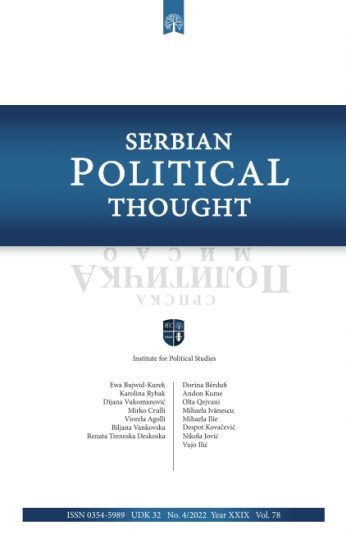Main topic
Contents
The Political Role of Technology
Abstract
Author analyses the (political) role of technology in Marcuse’s works. Contrary to critics’ claims author demonstrates that Marcuse already in his early works perceived technology as a new protagonist of historical process. Author then follows in detail how Marcuse developed and elaborated this idea. In the end author proposes term “technoaesthetics” as a notion which describes new aesthetic society that Marcuse envisions.
References
- Farr, A. L. (2009) “Critical Theory and Democratic Vision: Herbert Marcuse and Recent Liberation Philosophies”. New York: Lexington Books.
- Freud, S. (1962) “Civilization and Its Discontents”. New York: W W Norton & Company Inc.
- Habermas, J. (1968) “Zum Geleit”. In: Habermas, J. (ed.) “Antworten auf Herbert Marcuse”, Frankfurt: Suhrkamp. pp. 9-16.
- Heidegger, M. (1977) The Question Concerning Technology, The Question Concerning Technology and Other Essays, [online]. Available at: http:// www.psyp.org/question_concerning_technology.pdf [Accessed 7 March 2017].
- Lukacs, G. (1971) “History and Class Consciousness: Studies in Marxist Dialectics” Great Britain: The Merlin Press Ltd.
- MacIntyre, A. (1970) “Marcuse” Great Britain: Fontana.
- Marcuse, H. (1929) “On the concrete Philosophy” In: Abromeit, J., Wolin, R. (eds.) “Heideggerian Marxism” Lincoln and London: University of Nebraska Press. pp. 34-53.
- Marcuse, H. (1933) “On the Philosophical Foundations of the concept of Labor in Economics” In: Abromeit, J., Wolin, R. (eds.) “Heideggerian Marxism”, Lincoln and London: University of Nebraska Press. pp. 122-151.
- Marcuse, H. (1937) “Industrialization and Capitalism in the Work of Max Weber”. In: Shapiro, J. (ed.) “Negations: Essays in Critical Theory” London: MayFlyBooks. pp. 151-171.
- Marcuse, H. (1937b) “The Affirmative Character of Culture” In: Shapiro, J. (ed.) “Negations: Essays in Critical Theory” London: MayFlyBooks. pp. 65-99.
- Marcuse, H. (1941) “Some Implications of Modern Technology” In: Marcuse, H., Kellner, D. (eds.) “Technology, War and Fascism: Collected Papers of Herbert Marcuse Volume I” London and New York: Routledge. pp. 39-67.
- Marcuse, H. (1958) “Soviet Marxism: A Critical Analysis” New York: Columbia University Press.
- Marcuse, H. (1964) “One-Dimensional Man: Studies in the Ideology of Advanced Industrial Society”. London and New York: Routledge.
- Marcuse, H. (1969) “An Essay on Liberation” Boston: Boston Beacon Press.
- Marcuse, H. (1972) “Counterrevolution and Revolt”. Boston: Beacon Press.
- Marcuse, H. (1974) “Eros and Civilization: Philosophical Inquiry into Freud”. Boston: Beacon Press.
- Marcuse, H. (1987) “Hegel’s Ontology and the Theory of Historicity” London: MIT Press.
- Marx, K., Engels, F. (1985) “Rani radovi”. 7th edition. Zagreb: Naprijed.
- Marx, K. (2010) “The Poverty of Philosophy: Answer to the Philosophy of Poverty by M. Proudhon” USA: Martino Publishing.
- Schoolman, M. (1984) “The Imaginary Witness: The Critical Theory of Herbert Marcuse”. USA: New York University Press.
- Whitfield, J. S. (2014) “Refusing Marcuse: Fifty Years after One-dimensional Man”. Dissent, 61 (4): 102-107.

